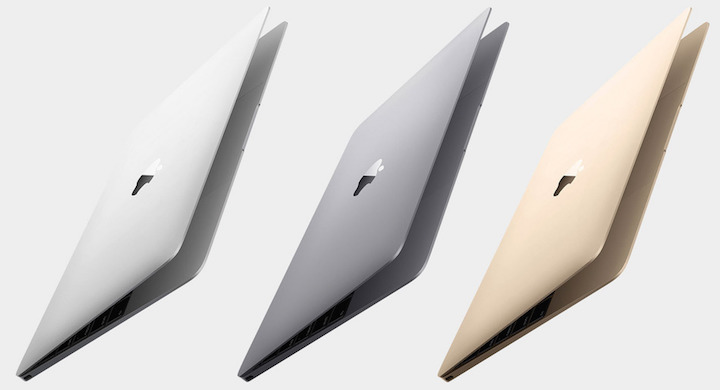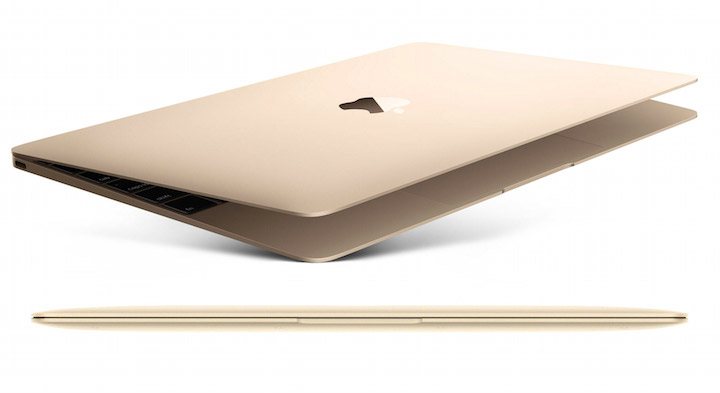There has been a lot of discussion over the past few days about the level of performance we should expect out of Apple’s new MacBook when it ships later this week. A few days back the results of a Geekbench test of the laptop were posted to the web (and have since been rescinded) that clearly showed a notebook whose performance was on par with a machine that was nearly four years old. While this will surely dissuade some potential customers from purchasing the computer, in the greater scheme of things the MacBook benchmark scores don’t really matter. Here’s why.
According to the Geekbench test results, the new MacBook scored a single core test result of 1924, while multicore performance clocked in at 4083. Unless you follow benchmark testing for new computers on a regular basis those scores probably don’t mean a lot out of context. But to put things in perspective, those results are about on par with the MacBook Air that was released back in 2011. It isn’t often that you see a tech company put out a new product that takes a step backwards in terms of performance.
To put things further into perspective, the Geekbench tests were also run on the newest models of the MacBook Air, which was released on March 9. It scored 3208 on single-core performance, and a 6681 on the multicore test. The Air’s 1.6 GHz Intel Core i5 processor isn’t even considered state of the art, but it handily beats its newest sibling in terms of general performance.
But the new MacBook is more than just the sum of its parts. Sure, it is impossible to argue that its Intel Core-M processor isn’t underpowered when compared to other laptops, but that same CPU gives the MacBook much of its personality too. Without this ultra-efficient chip Apple could not have built such a thin and lightweight notebook, nor could they have done away with the internal fan, making the MacBook completely silent in the process. Those are two very key components of what makes this computer unique, and many people will be buying one for those reasons alone.
It is also important to point out that unlike the Air, the new MacBook comes equipped with a Retina class display. That means its screen is head and shoulders above the one found on the Air in terms of resolution and color reproduction. But the Retina display also puts a hit on performance, which no doubt impacted the Geekbench results to a degree. The Air’s higher scores reflect the fact that it is driving a much lower resolution screen, freeing up resources for use elsewhere. But consumers will notice the difference in the two laptop displays, and will be far more impressed by the MacBook in this category.
But the real reason the benchmark scores don’t matter is because they don’t mean a thing to the customer who is planning on buying this laptop. Early adopters are looking for the thinnest, lightest Mac ever made, and they will definitely get that in the new MacBook. For them, the performance will be good enough to accomplish the tasks that they want to complete, and the svelte nature of the design of this notebook will trump everything else. They’re buying it because it is extremely portable, unbelievably thin, and incredibly beautiful. Customers who are driven by those motivations don’t care how fast the processor is so long as they can get their work done.
Apple is taking a very similar approach to the new MacBook as they did with the original Air when it was first released back in 2008. It will be a high-end, premium product that will ultimately appeal to buyers based on its physical attributes rather than its tech specs. But over time, as technology improves, the MacBook will evolve into a more capable and respectable machine, widening its appeal in the process.
When it was first released, the Air was hailed as revolutionary product that was hamstrung by poor performance and a high price tag. Similar things are being said now about the MacBook as well. But after a few iterations, that is likely to change, and we’re likely to see history repeat itself in terms of the success of this product.







6 thoughts on “Why the New MacBook Benchmark Scores Don’t Matter”
I have a 2012 11″ MacBook Air. I was definitely in the market for the “Retina MacBook Air” but this is not going to get me to buy. The Geekbench score on my 2012 Core-i7 are:
Single-Core: 2914 Multi-Core: 6082
I could handle slightly slower but we are talking about such a huge performance hit here that I can’t reasonably consider the new MacBook as a replacement for my 3 year old MacBook Air. I’m pretty disappointed since my normal 3 year window is up this summer. I might opt for keeping the Air for another year since the 2015 Airs also aren’t any faster (but at least not significantly slower) or I might switch to a 13″ Retina MacBook Pro and take the substantial hit on portability. None of these options are very appealing.
But to say that CPU performance doesn’t mean anything to customers is wrong, at least in my case.
I totally get what you’re saying James, and you’re right, in your case it is wrong to say that it doesn’t matter, which I tried to express in the post. You’re not one of those customers (and neither am I) who values portability over everything else. We need performance out of our laptops, and these results would dissuade me from buying one too.
But my point was that the customers who really want this laptop are going to buy it, and now benchmark scores are going to convince them otherwise. It is small, light, and looks beautiful, which is exactly what they want. Others of us will have to wait until those benchmark scores catch up to what we need. That will probably be a few generations though.
And for the record, I made the switch from an Air to Retina Pro 13″ in 2013 and have not found the sacrifice in weight and thickness to be that great. The performance is so much more improved, and the Retina screen is fantastic. Definitely worth considering going that route.
Well I do value portability at the expense of a Retina display. I really don’t want to switch to a 13″ MacBook Pro since it isn’t portable enough. Having an ~50% weight increase is not appealing. I would buy a new 11″ Air except it only has about a ~25% performance improvement. That isn’t enough to spend the money to replace my in perfect working condition 11″ Air.
What I don’t value as much as others may is a very long (all day) battery life. I move from place to place but I usually have power without needing to carry around a charger. The 5-6 hours I get on my 2012 11″ Air is almost always sufficient for my needs.
I’m using a mid-2013 13″ MacBook Air, and while I have been looking forward to a Retina display, I agree with you about the weight. The main reason I wanted the MBA in the first place was portability. The battery life is still pretty decent as well, and in any case, there is usually some place to charge in dire circumstances.
One thing I love about my new and fully upgraded 2.2ghz i7 Macbook Air besides its light and tiny profile is its quite a powerhouse for its class. I do moderate amounts of Aperture (RIP) and Final Cut Pro for my blogging and it handles the job quite well. Much better than my old 2011 Air which chokes on those files. I’m pretty sure the Macbook won’t be an upgrade for me at all. I only wish Apple gave the air a retina screen. Oh well.
I think the lack of a Retina display will be one of the distinguishing features between the Air, the new MacBook, and the Pro series now. Otherwise they probably would have updated the Air with such a screen. I agree that the Air is about perfect for what it is, other than the lack of a high-res screen, but it probably would have cannibalized sales of the MacBook.